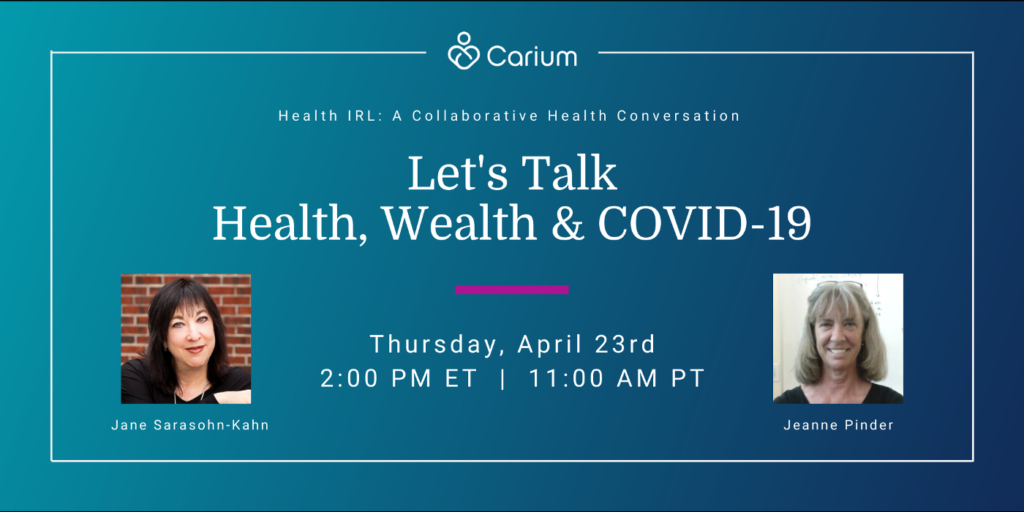 The coronavirus pandemic is dramatically impacting and re-shaping our health and wealth, simultaneously. Today, I’ll be brainstorming this convergence in a “collaborative health conversation” hosted by Carium’s Health IRL series. Here’s a link to the event.
The coronavirus pandemic is dramatically impacting and re-shaping our health and wealth, simultaneously. Today, I’ll be brainstorming this convergence in a “collaborative health conversation” hosted by Carium’s Health IRL series. Here’s a link to the event.
Jeanne founded ClearHealthCosts nearly ten years ago, having worked as a journalist with the New York Times and other media. She began to build a network of other journalists, each a node in a network to crowdsource readers’-patients’ medical bills in local markets. Jeanne started in the NYC metro and expanded, one node at a time and through many sources of funding from not-for-profits/foundations, growing to an impactful force for health care cost transparency in today’s high-deductible/out-of-pocket patient-as-payor world.
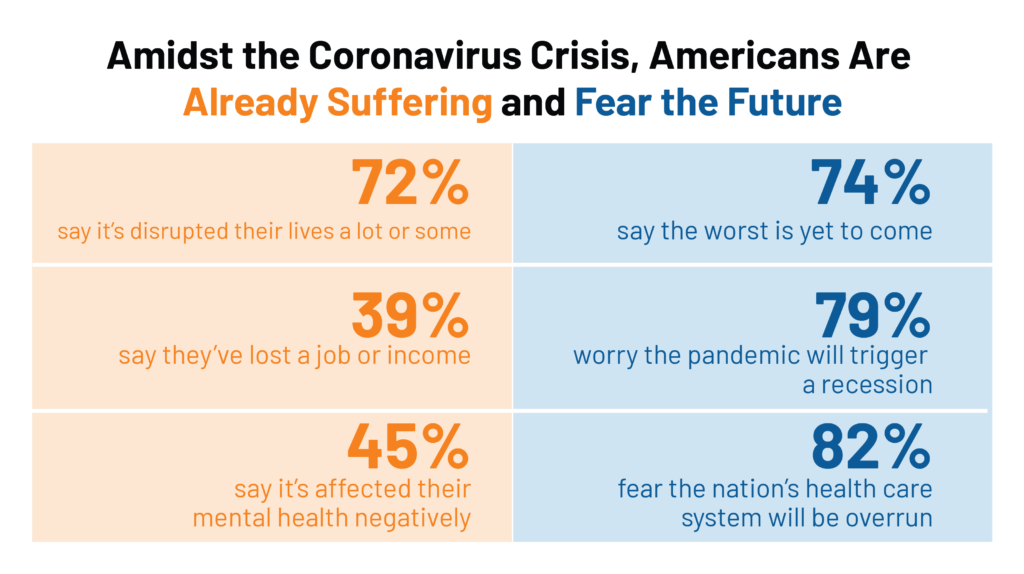 We’ll be brainstorming Health and Wealth in the coronavirus pandemic, covering a broad array of facts, health consumer challenges and hacks in our conversation.
We’ll be brainstorming Health and Wealth in the coronavirus pandemic, covering a broad array of facts, health consumer challenges and hacks in our conversation.
For my part, I’ll refer to many health-economic aspects of the COVID-19 era. Here are some of the data points in charts to which I’ll point during our chat. I’ve provided links to the many sources so you can follow up as you wish, based on your own lens on this important convergence. This first chart comes from Kaiser Family Foundation’s ongoing health tracking poll with the top-line on Americans’ views of the coronavirus — negatively disrupting life, income, and mental health for a plurality of U.S. adults.
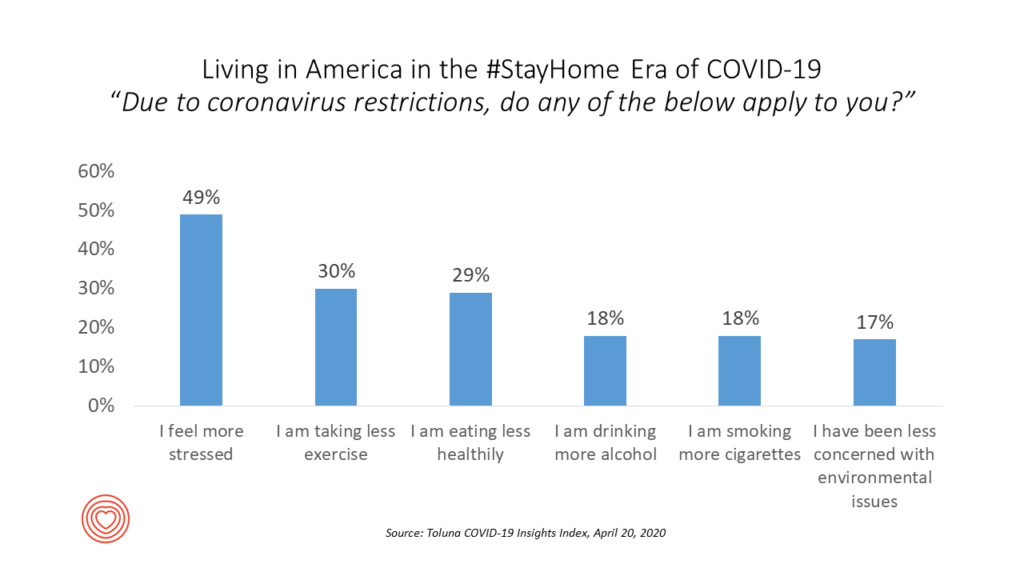 People are adopting a variety of coping mechanisms to manage the great lockdown at home, often resulting in health habits that are risks to overall well-being and resilience. I covered some of those behaviors in yesterday’s Health Populi here, shown in the bar chart from the most recent Toluna-Harris COVID-19 Barometer.
People are adopting a variety of coping mechanisms to manage the great lockdown at home, often resulting in health habits that are risks to overall well-being and resilience. I covered some of those behaviors in yesterday’s Health Populi here, shown in the bar chart from the most recent Toluna-Harris COVID-19 Barometer.
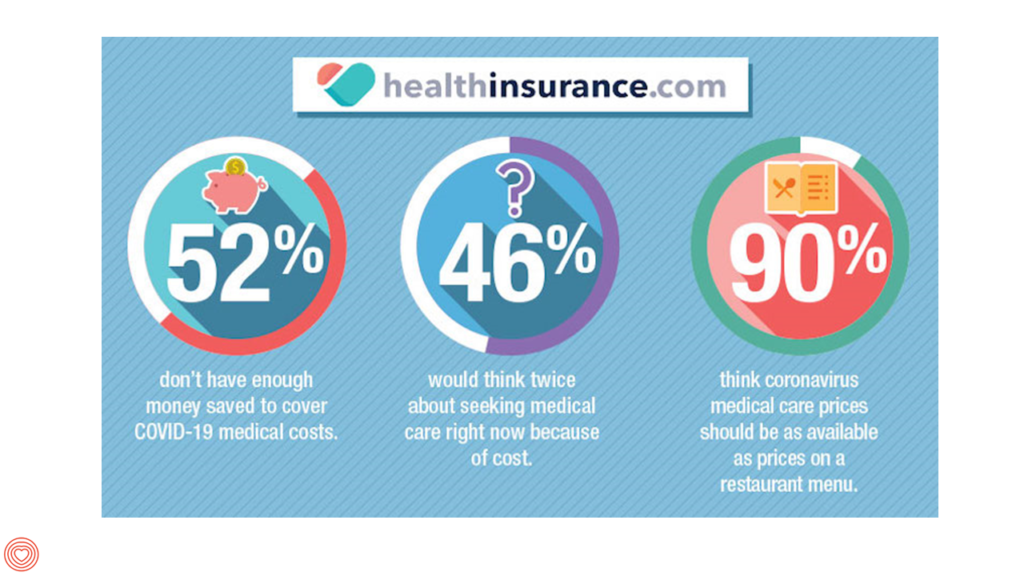
When considering health care costs, nearly one-half of people would re-consider seeking care due to cost, which I’ve described here on Health Populi as self-rationing care. One-half of U.S. adults also say they wouldn’t have sufficient money saved to cover costs to cover COVID-19 medical care, from a Healthinsurance.com survey.
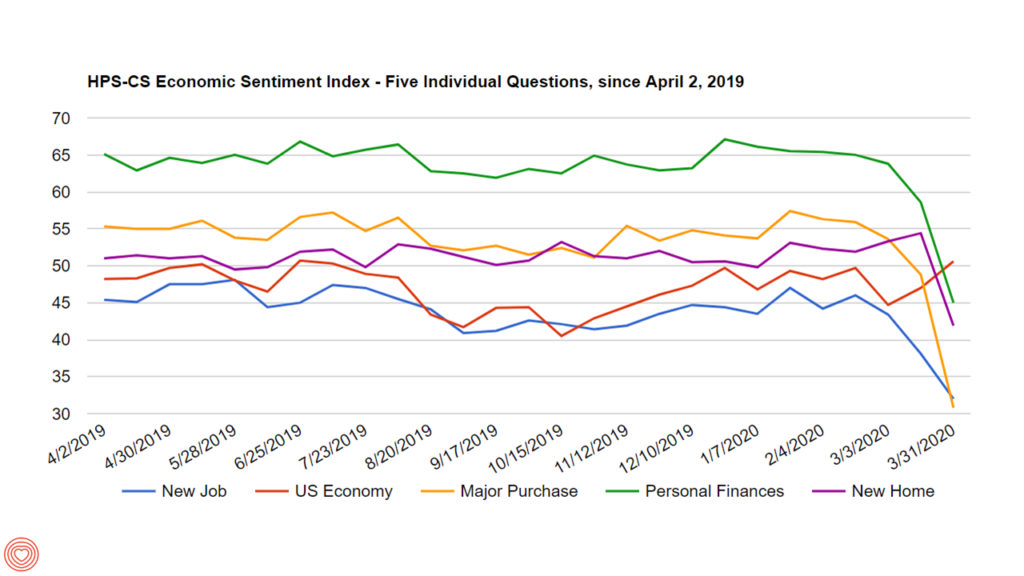
Americans’ economic sentiment plummeted to its lowest level since the Great Recession, in wake of coronavirus pandemic, the Civic Science ongoing consumer sentiment index study found.
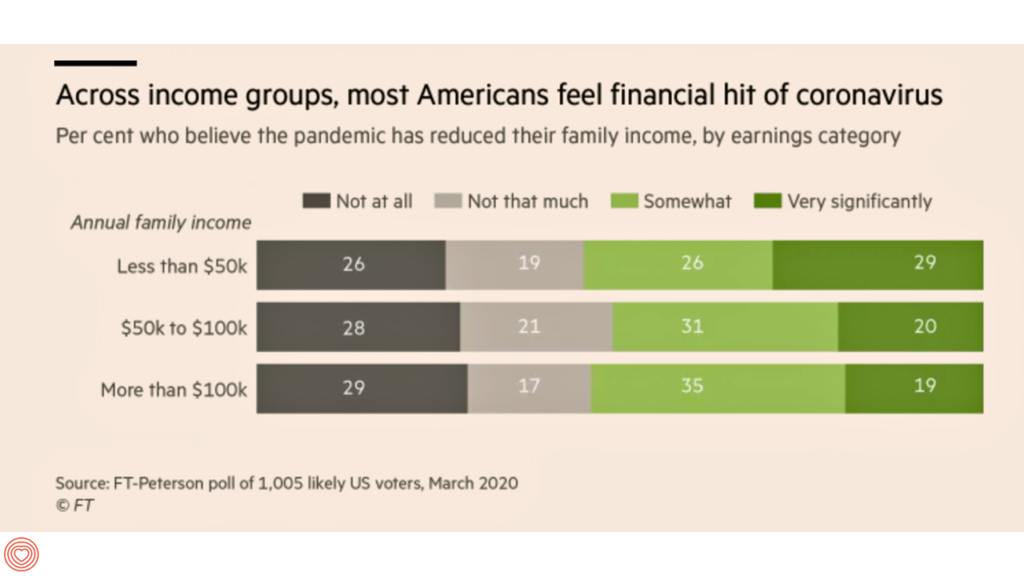
Across income groups among likely U.S. voters, whether earning under $50,000 or over $100,000, Americans feel financial pain due to COVID-19, based on a study from the Financial Times and Peterson Foundation.

Job losses as of 22nd April 2020 tallied to 26.5 million, the greatest jobs lost since the 2008 Great Recession…erasing all job gains since then, this Washington Post story explained today.
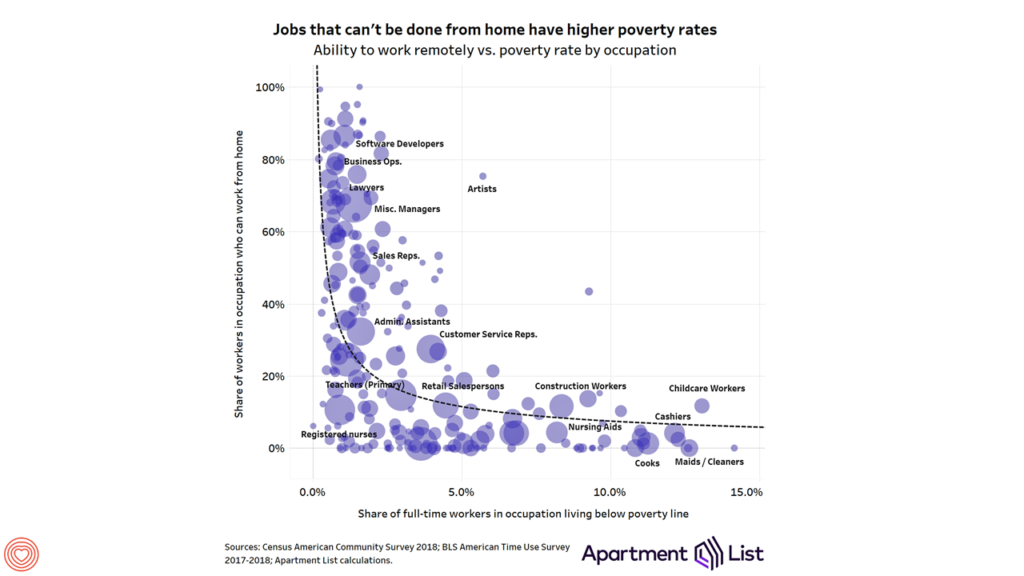
Jobs that cannot be performed at-home in #StayHome era tend to have lower pay and greater poverty rates, this data from the Bureau of Labor Statistics found.
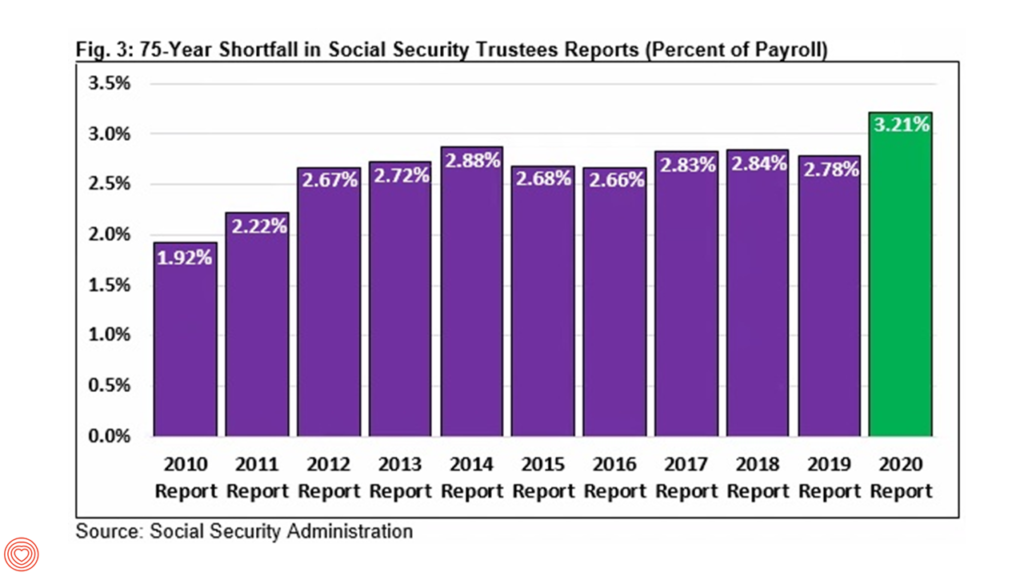
In the short-term, Social Security will experience a significant shortfall based on an analysis by the Committee for a Responsible Federal Budget which studied the new report published yesterday by the Trustees at the Social Security Administration. They forecast a shortfall as a percent of payroll, a result of expected job losses due to the pandemic.
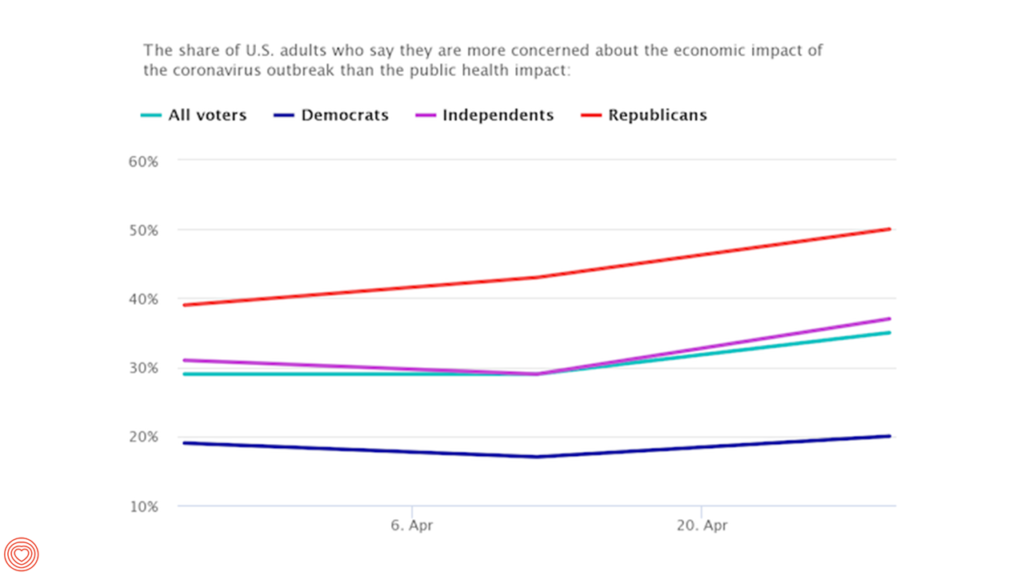 Finally, it wouldn’t be the Health Populi blog without some politics thrown into the discussion: here, note that more Republicans are concerned about the economic impact of the coronavirus outbreak than the public health impact, a growing sentiment through April. Only 1 in 5 Democrats are more concerned about economics than the virus as of late April compared with Independents or Republicans. Across all voters, the percent is about 1 in 3 people more worried about the economic impact of COVID-19 versus the health impact. Which brings us full circle to Health, Wealth and COVID-19…
Finally, it wouldn’t be the Health Populi blog without some politics thrown into the discussion: here, note that more Republicans are concerned about the economic impact of the coronavirus outbreak than the public health impact, a growing sentiment through April. Only 1 in 5 Democrats are more concerned about economics than the virus as of late April compared with Independents or Republicans. Across all voters, the percent is about 1 in 3 people more worried about the economic impact of COVID-19 versus the health impact. Which brings us full circle to Health, Wealth and COVID-19…
Health Populi’s Hot Points: Please #StayHome and Stay Well in the pandemic – along your many personal pillars of health — physical, fiscal, mental, emotional, social, and spiritual…


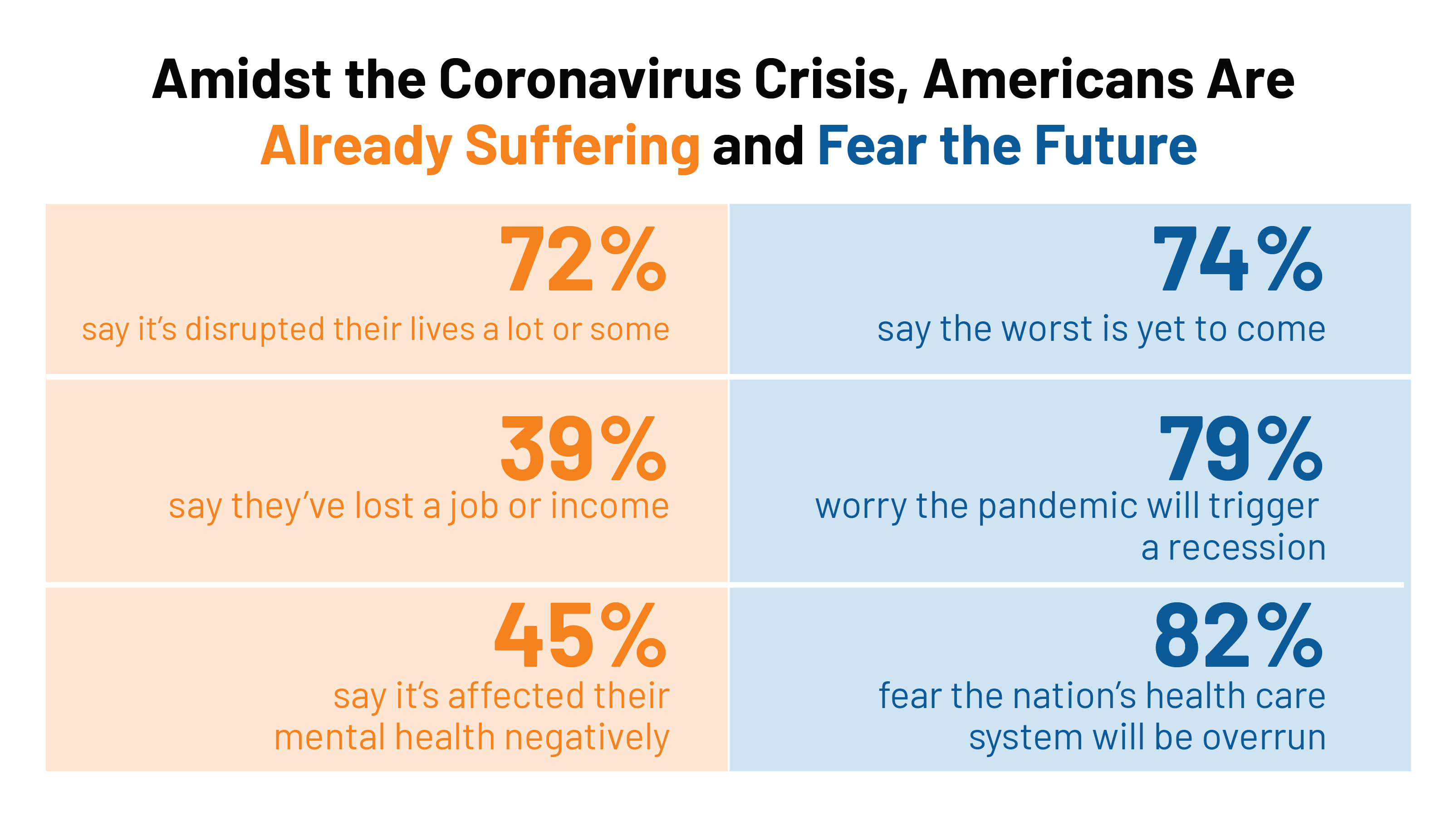


 Thank you FeedSpot for
Thank you FeedSpot for